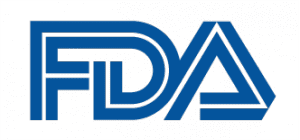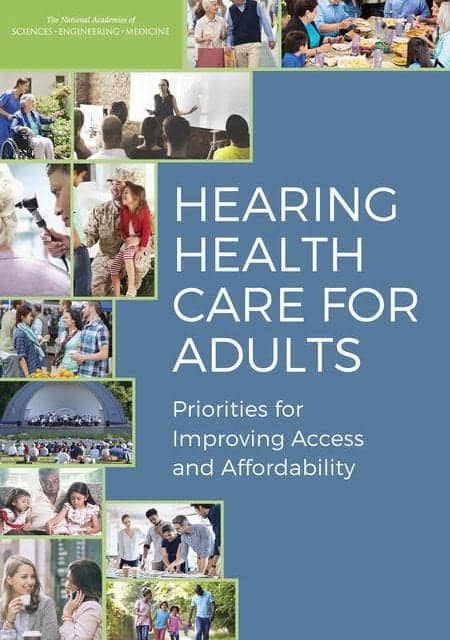
Dr Mann was careful to clarify two points with respect to the new physician waiver guidance:
- It does not apply to children (they will continue to have the medical evaluation requirement without the option of a waiver);
- The guidance indicates that dispensers are still required at this point to make available, and provide consumers the opportunity to review, the User Instruction Brochure that contains information about possible Red Flags prior to the sale of a hearing aid.
At about the same time as Dr Mann’s announcement, the FDA issued a press release and guidance document explaining the new guidance.
“Today’s actions are an example of the FDA considering flexible approaches to regulation that encourage innovation in areas of rapid scientific progress,” said FDA Commissioner Robert Califf, MD, in the press release. “The guidance will support consumer access to most hearing aids while the FDA takes the steps necessary to propose to modify our regulations to create a category of OTC hearing aids that could help many Americans improve their quality of life through better hearing.”
In October 2015, the President’s Council of Advisors on Science and Technology (PCAST) issued recommendations intended to facilitate hearing aid device innovation, and improve affordability and patient access. Additionally, the FDA and other federal agencies and a consumer advocacy group sponsored a study published by the National Academies of Sciences, Engineering and Medicine (NAS) in June 2016.
Both PCAST and NAS cited FDA regulations regarding conditions for sale as a potential barrier to availability and accessibility of hearing aids, and concluded that the regulation was providing little to no meaningful benefit to patients. PCAST noted that, at present, hearing aids often cost more than $2,000 a piece, and such barriers to distribution channels may limit new entrants who could achieve technological breakthroughs that could offer a greater variety of lower-cost hearing aid options to those suffering from hearing loss. The regulation requires that all prospective hearing aid users have a medical evaluation by a licensed physician to determine the cause of hearing loss and whether medical or surgical treatments would be more appropriate. Individuals 18 and up may waive the requirement for a medical evaluation by signing a waiver statement.
For the guidance document issued today, the FDA considered recommendations from the PCAST and NAS reports and public comments received on a draft guidance issued in 2013, as well as comments received at an April 2016 FDA workshop.
Under the new guidance, the FDA will continue to enforce the medical evaluation requirement for prospective hearing aid users under 18. Under the FDA’s hearing aid regulations, hearing aid labeling must include information about medical conditions that should be evaluated by a licensed physician. In addition, the FDA requires that information and instructions about hearing aids be provided to consumers before any purchase from a licensed hearing aid dispenser.
The guidance is “Immediately in Effect,” which means it is implemented without prior public comment because it presents a less burdensome policy that is consistent with public health. The public can still comment on the guidance, and the FDA will consider all comments received and revise the guidance document as appropriate.
Key reasons behind new guidance document. At the NAS Dissemination Meeting, Dr Mann further explained the rationale behind the new guidance. “As noted in the NAS report,” said Mann, “the medical evaluation requirement does not appear to provide any meaningful benefits to hearing-impaired adults for several reasons. First, the [NAS] Committee conducted a thorough review of the literature regarding medically treatable causes of hearing loss, as well as reviewing data from the VA and the DoD databases, and concluded that the serious causes of hearing loss requiring urgent attention are rare. And, when they do occur, they often present with symptoms such as ear drainage or pain that would prompt most individuals to seek medical attention. Secondly, although there are no reliable statistics in this area, it’s clear that the majority of consumers are currently signing the waiver statement in lieu of obtaining the medical evaluation…The statistics cited in the report were anywhere between a 60% to 95% waiver rate. Thirdly, the current labeling requirements ensure that the Red Flag symptoms indicating the need for a medical evaluation are already present in the [mandated] User Instructional Brochure of the hearing aid, and this is for the benefit of both the consumer and the dispenser. So given these reasons, and the potential financial and other barriers that the medical evaluation requirement may pose for millions of Amerian adults with untreated hearing loss, FDA has concluded that we agree with NAS Recommendation #3, and we will be pursuing modifications to the conditions for sale regulation regarding the medical evaluation through the usual rule-making procedures with news of these procedures in the Federal Register. However, as this can be a lengthy process, we are issuing the immediately in effect guidance today to indicate that we will no longer be enforcing the medical evaluation requirement while the rule-making process moves forward.”
“We want to acknowledge that this step by FDA may be controversial and that some individuals and professional organizations may have concerns regarding the removal of this regulation,” concluded Mann. “However, we at FDA have carefully considered the totality of the available information, and have concluded that the benefits of easier and potentially less costly access to hearing aids outweigh any demonstrable benefits that are being achieved with the current conditions-for-sale regulation. However, as always, we welcome further input from all stakeholders on the guidance [issued today], and we will review and consider these comments as we move forward.”
OTC category proposals to come. The FDA also intends to consider and address PCAST and NAS recommendations regarding a regulatory framework for OTC hearing aids without the requirement for consultation with a credentialed dispenser. The agency is committed to seeking additional public input before proposing such an approach, said Mann.







There will continue to a niche for audiologists who can fit aids for special situations. However, I think they willl be like people who fit and make special shoes, braces, etc. The bulk of people should do fine with simple, inexpensive devices and sheer volume should encourage developers to improve on what’s out there now.
We only have ourselves and the manufacturers to blame here. There is no way that we will ever be able to compete with what is about to go down.
The profession will survive a little while longer, but the writing is on the wall. I’m curious how long it will take for most of us to realize it.
Eduardo, I just opened a new brick and mortar and have two more planned. Unless you have never been to an Apple Store or a Best Buy, you should be factoring the staff at these chains views old farts with only slightly more enthusiasm than being told to clean the restrooms. And the feeling is mutual. Seniors hate being treated as senile relics and thats the normal interaction I observe as Chad tries to explain to Myrtle how to text for the third time in these establishments. Think how much hand holding, instruction, support and care we give the average patient so they have success. I will service the hearing aids they buy at Apple and Best Buy for free. When the instruments fail I will loan them some Widex or Oticon for free. Then when their aids come back I will offer them 100% trade in value and many will turn in their Apples for real hearing aids fit by a top professional. Just wait and see.
I would strongly suggest brushing up on your CIC impression taking skills. Those wont be OTC anytime soon
CICs are a dying breed my friend. We live in a wireless RIC world now. Besides, your not going to fit CICs for a few hundred dollars and be in business very long. The delivery model is changing rapidly and to try to simply maintain the same approach and assume they will come running to you with wallets open is a fool’s errand. If the price differential were small, then maybe. But when they can go to Costco and get a set of top aids for $1800 that connect to their iphone, it makes it very difficult to compete under the traditional model. Keep in mind that the boomers are a much more tech savvy bunch than 85 year old Myrtle. The dynamics of the customer are evolving as quickly as the products. And I hope you have a bunch of managed care contracts lined up. You will need them. Best of luck with your expansion.
Eduardo, we find the our methodology is profitable and effective competing in the current marketplace. We expect that to continue with OTCs becoming more widespread. We insist all of our patients wear rics for 5-7 days before we decide on a purchase. We carry the top 5 companies. We often have patients wear three different mfgs for multiple days before we feel we have the best fitting and sounding instrument for that individual. At that point, if we feel we can improve upon the best fitting and sounding ric, we offer custom and explain if it ends up they prefer the CICs, they can have them at the same price, or they can switch back to the rics if they dont find the CICs superior. We have a very low return rate, and a very high satisfaction rate. We are probably 80-20 Ric to Custom. I cant imagine OTC hurting us. Once folks understand the huge variance in fit and sound between products, they wont look at lesser offerings. I cant eat at Taco Bell, I know what wonderful food tastes like. Yes, my dinner costs 5-10 times what it would cost if I was willing to eat teenager food, but I am not and deserve a great meal after a hard days work. If you think all the folks who have worked their whole lives to be able to have things of quality in their life are going to buy hearing aids that are not as comfortable and not as effective as what we have already provided them, you are loco. New users may, but thats why we have them wear aids for a week or more for free before we even discuss models and costs. How can they value our quality if they have never experienced it? We do no advertising of any kind. Our work is our advertising. I believe all practices who provide top quality instruments and fitting services at fair prices will be as busy as can be as long as they are willing to let customers experience better hearing at no cost.
The problem with OTC hearing aids are that though they can be bought at a discounted rate, that rate is not such a bargain when the hearing aids don’t work well and need to be reprogrammed and there is no one to help the do-it-yourself (DIY) consumer. $2000.00 for a pair of hearing aids is a great price only if they are wearable and helpful; it is way too expensive if they are going to end up being in-the-drawer hearing aids!!
Well, time to sell hotdogs.
As a longtime veteran of hearing aid manufacturing and sales, and just now starting our second hearing aid dispensing practice, I fall squarely in the category of someone unconcerned by this change. Bait and switch full page newspaper ads, misleading tv comnercials and direct mail and an industry strategy to always, always, always get the maximum out of every buyer while failing to address the elephant in the room that 3/4 of those in need never get hearing auds in the first place have brought home these chickens to roost. Tele-audiology and a willingness to adapt to changing needs by those seeking correction will insulate practices from the changes ahead, imo. Instead of folks coming to an audiologist office, a hearing test in their nurse practitioners office performed by an audiologist or hearing specialist in their office will be commonplace in five years. Bait and switch advertising and $7,500 pairs of poorly fit hearing instruments will be far less common. Thats the silver lining to this cloud
Any Audiologist or Hearing Aid Dispenser in agreement with OTC hearing aids has not thought this through.
Not only does this have the potential to be life threatening for certain individuals who may have something wrong with them, it could have a serious impact on people who make a living helping people hear with hearing aids.
Eventually if someone can just go to Wal Mart to purchase a ‘hearing aid,’ why would they need to see an Audiologist or Hearing Aid Dispenser? They WILL have problems from the OTC hearing aid and where are they going to go for guidance? The local Audiologist will have already closed their doors long ago because the revenue from testing hearing and the like is so low that they could not afford to keep the lights on.
The ENT practices will still have their Audiologists and will be overwhelmed because all of the other practices closed their doors.
Why would anyone want to be an Audiologist if they can’t make a living doing it? There’s not enough room at ENT offices or the VA to fill with all of the grads. They would have to figure out a way to pay for the 6 figure college education with no work. Not enough to survive let alone support a family.
Clearly the people behind this nonsense are either for big corporations being the only people in the hearing aid industry in the future or they haven’t thought this through at all.
The argument is that the 80% who don’t get a hearing aid who need them will now get that hearing aid because it’s an OTC version has no factual basis. It is all a conjecture.
I urge anyone who has a family member who needs hearing aids or if you know anyone in this field to take action against these ignorant people who support OTC hearing aids.
Again these people have not thought things through this far to see the real life implications that this could have on people who need help hearing.
People are not suddenly going to go purchase a hearing aid at a retail store! There are so many more reasons than finance that keep these people from getting help. Sure there are people who cannot afford them which is why there are programs like the Lion’s Club and Hear Now.
This is absurd and to hear that Audiologists are for something like this is a disgrace to the profession.
Well the ADA (Kim Cavitt) and the AAA (Alison Grimes) think this is a great thing to happen to audiology and feel it will open up new opportunities. I fail to see how. This will open the floodgates of online hearing aid sales if anything. Poor outcomes for patients and the death knell for audiology.
Jason, as a 28 year veteran in audiology I find that most of your arguments relate to protecting our profession, our way of life. I want to do everything possible to protect my income and business but the reality is that innovation cares little about those arguments.
As audiologists we like to stand on the “medical issue” of hearing loss but for an overwhelming majority there is no medical issue. Yet in our unwavering support for the medical model we have created an enormous class of hearing loss sufferers who will not pursue hearing help because “the problem isn’t bad enough yet”. What they really mean is “the problem isn’t bad enough to spend $3000 on a pair of hearing aids”. And so we have inadvertently participated in a culture where people address hearing loss only when it “gets bad enough”. There must be an end to it. Dropping this FDA requirement is one step, allowing for better quality OTC hearing aids is another. Mandating some insurance coverage is another. Yes, the years of big retail profits is coming to an end. Yes, some people who need better hearing aids will fall into the OTC trap just as some visual loss patients use readers much too long. But overall this will help people address their hearing loss sooner and funnel them to a professional – probably sooner than they do now.
An entrepreneurial audiologist will examine the future landscape and position their practice to benefit from the increase in early adoption of hearing aids. I hope you plan to be on the edge of that new wave with me.
Scott, I see your argument. You have no evidence to support that people aren’t getting hearing aids because it isn’t that bad to spend $3000. That just one idea and the validity of that argument is null.
As I posted in my above argument; this could be the worst thing to happen to Audiology since it began. Can you argue that?
Who is going to spend triple digits to go to college for a dead end career?
It is clear to me that the ADA as well as AAA have not thought this through. If I was in college for this career right now I would immediately change to something that is actually worth while to support a family.
Clearly anyone who supports this has not thought this through.
Imagine an 80 year old going to Wal Mart to purchase one of these aids, or even their kids doing it for them. No counseling and everyone is clueless. That ‘hearing aid’ will be in the drawer or in the trash extremely fast.
Oh but we just wanted to see if we could tap into the 80%. This is the reality that WILL happen because it already has. It just seems to me that the ADA is willingly ignorant about it.
“the current labeling requirements ensure that the Red Flag symptoms indicating the need for a medical evaluation are already present in the [mandated] User Instructional Brochure of the hearing aid…”
Yes, and a majority of people never even look at their book – even for needed information such as how to change a battery. It’s unlikely they will ever apply those symptoms to their own situation.
I do find it odd that “the FDA requires that information and instructions about hearing aids be provided to consumers before any purchase from a licensed hearing aid dispenser.” Does this imply that unlicensed sellers do NOT have provide such information to the user? Why the 2-tier system, rules that apply to only those with a license? In some ways this is Pandora’s box.
The FDA does not require licensure, only that these conditions of sale be followed by dispensers of hearing aids, licensed or not.
So, what does this mean for the future of hearing aids? Will over-the-counter become the main way to purchase them?
Yes, it appears that this move is to make OTC hearing aids a reality. Another nail in the coffin of audiology.
The industry has brought this on itself. After years of ripping off consumers, the other shoe is finally dropping. Nobody will ever convince me that $6,000 -$7,000 is a reasonable charge for a pair of hearing aids. That is simply absurd and it most certainly has been a major barrier to access for many people. Whether you like it or not, you are in the electronics business. Guess what typically happens to the price of electronic devices over time? That’s right, they drop. And sometimes dramatically.
The future of this industry is online as more and more consumers will be able to take self-directed online hearing tests (they have already begun) and then plug their test results into their smartphones. There will be a new line of smart ear buds that fit better and look better and allow the consumer to hear their calls (already available) and simply control sound quality and directionality from the phone screen. As long as there are built in SPL safety mechanisms (not difficult to do) and disclaimers on the packaging, you will be good to go. Throw in a brush and a bag of changeable tips, and they no longer need to drive over to see you.
Apple and Samsung will probably have these products on the rack at Best Buy within 2 years.
Any audiologist currently considering expansion of their dispensing practice thru additional brick and mortar stores needs to have their head examined.
Lastly, many manufacturers are literally killing the audiologists and hearing specialists with insane wholesale costs. We can no longer afford to buy the product for $1200 and expect to make a decent profit. Why do you think people are flocking to Costco to get their hearing aids? They now pay what we pay. Add in reduced margins due to managed care contracts and increasing marketing costs and you will see private practitioners working harder and making a lot less in the years to come.
I am personally aware of several colleagues that are actively trying to sell their practices before they devalue any further. I suspect this will continue for some time. It’s a brave new world, kids.